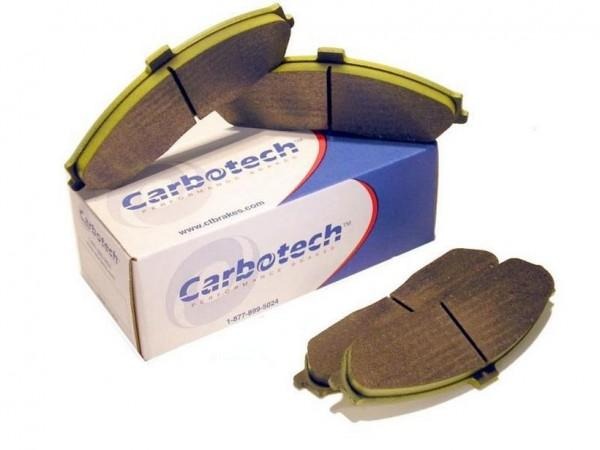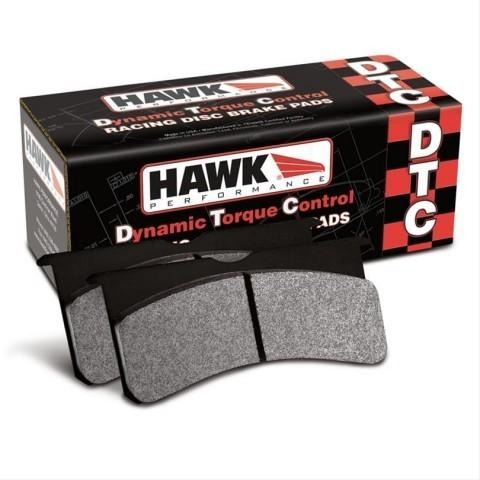Garage 101: Track Day Preparation - Brakes
Welcome to the first installment of Garage 101 on SlashGear – Our weekend car tips & tricks for automotive techies. If you are an automotive enthusiast and want to learn to drive your car in a performance situation, a track day is where you want to go. There are small, and sometimes large and famous, road racing tracks all around the country. What you need to do is find one near you, or not so nearby (I've spent years trekking four hours each way to the closest track near me) and call the track to find out when the next track day will be held.
I guarantee that there will be multiple organizations out holding track days, also known as HDPE (High Performance Driving Events) at the track. These are not races, you will not be battling it out wheel-to-wheel with other drivers on the track. In fact, driving overly aggressive or passing other drivers in a method other than allowed by the event holders will get you booted from the track.
Once you find out when your track day is being held, pay your money and then get your car ready. Trust me when I say you want to get your car ready and don't pay for your track day until you have the funds to pay to get your car ready. There will be a tech inspection form of some sort that the track wants filled out, be sure you have it.
The big things that people tend to skip over, that will ruin your day and can lead to serious harm (or even death), are brake pads and brake fluid. That is what I will talk about in this installment.
The brake fluid that comes in your car from the factory will not hold up to a track day (Porsche or Ferrari drivers might be immune to this fact). I can tell you from experience that fresh factory brake fluid will not do the job in something like a Mustang, Miata/MX5, or Camaro. You want a high performance DOT 4 brake fluid. There are also major differences between DOT 4 fluids. I have had brake fade from overheated fluid using inferior DOT4 fluid in the past.
Brake fade from fluid happens when the fluid overheats and boils in the brake lines. What you end up with is a spongy feeling pedal that will go all the way to the floor and the car won't stop. Not stopping is a very bad thing when you are moving at speed, on a race track, with other cars around you.
The big brands that are recommended, and will survive a track day in just about any car and any skill level, are Motul or Brembo LCF600+. Neither of these fluids are cheap at around $19 per 500ml, if you are on a budget you will be tempted to buy something cheaper, don't. Nothing ruins your day faster than brake fade.

You can flush the fluid yourself, but it's a big job and you have to get all the old fluid out. If any old fluid is left, you will likely have brake issues at the track. I recommend having this done at a shop that has a vacuum machine specifically for getting all the fluid out.
You can also get brake fade that has nothing to do with overheated fluid or air in the brake lines. If you overheat the brake pads, you can get brake fade that will make it hard or impossible to slow the car and feels very similar to what happens with overheated brake fluid. The way you tell which sort of fade you have (from overheated fluid or overheated brake pads) is simple. If your pedal feels the same, but the car isn't stopping as well, the pads are the problem. Brake fade from overheated pads will also get better as the pads cool. With brake fade from overheated fluid, the pedal remains spongy until you bleed the brake lines no matter how cool the brakes are.
If you have 50,000 miles on your car and you are on the original pads, get some new pads. Normal street brake pads will simply crumble to dust with extreme heat and that is something that can kill you and others. Overheat your brake pads a few times and you may have nothing but the metal backing plate to stop your car in short order.

Find yourself a forum with road racers and ask what pads are common for your car. Normally, it comes down to two brands for track work: Hawk or Carbotech. I have personally used and abused both Hawk and Carbotech pads with no fade issues, assuming you choose the correct compound. There are other brands out there that people swear by.

My recommendation is stay away from street high performance or dual use track/street pads and go for a pure race compound and swap back to your factory street pads after an event or at the event. It's a pain, but I have spent many a morning swapping pads in the paddock at the track and swapping them back for the drive home.
The reason for this is that pure race compound pads need to be hot before they work well, meaning that cold stopping distances on the way to and from the track can be much worse than cold stopping with factory pads. That is a big problem in an emergency situation on the street. At the same time the factory pads simply can't handle the heat on the track.
My suggesting is Hawk DTC 60 or DTC 70, if you prefer Carbotech something along the lines of its XP10 or higher pads work for just about anything you might be driving. Brake cooling is a huge help, and depending on how fast you and your car are can be considered essential as you get faster.
For your first one or two track days, you can probably get by with the fluid and brake pad recommendations I've made here and have a safe, educational, and very fun day at the track. There is much more that goes into prepping a car for track use for intermediate and advanced drivers, but brakes is the place to start for your first time out. Check back for more topics on getting your car ready and what to do (or not do) at the track.
Photo Credit: Radu Bercan
